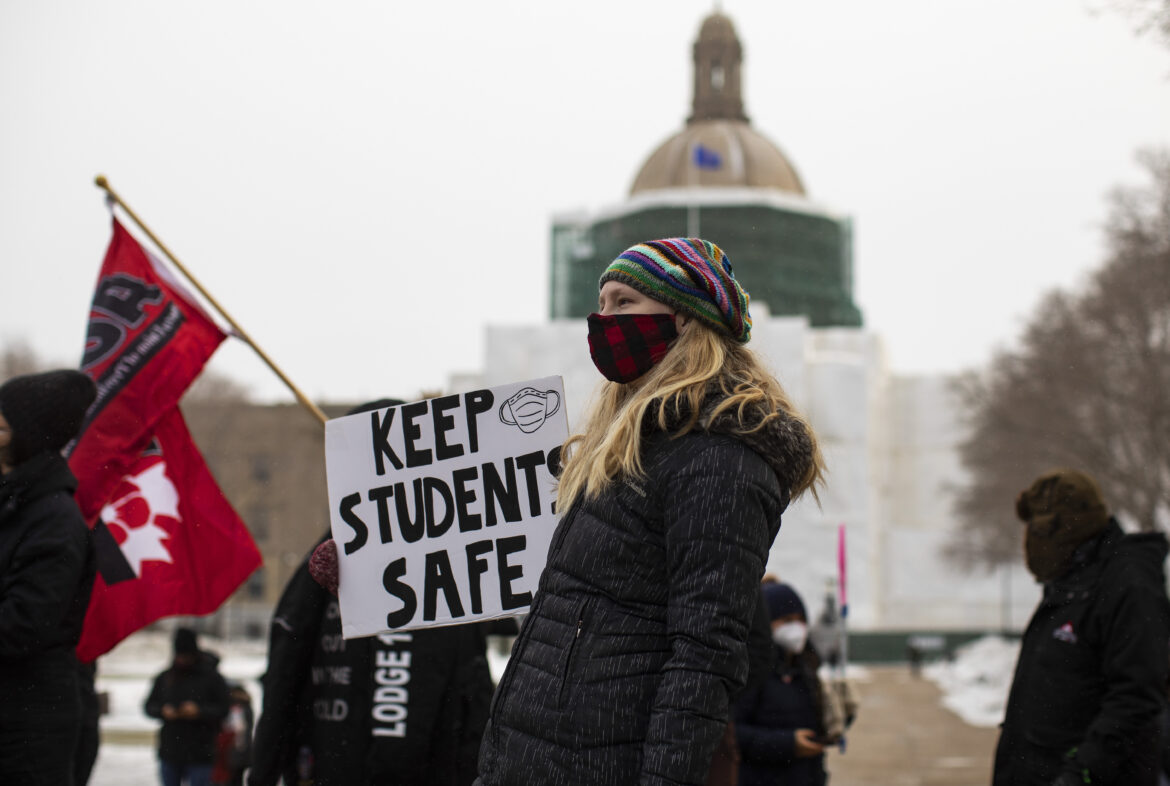By Jack Farrell
The Alberta government’s recent use of a rarely used measure to intervene in labour disputes is a sign of what’s to come, says a labour policy professor.
Over 3,000 educational support staff with the Edmonton Public school division were set to strike Thursday. But on Tuesday, at the division’s request, the province mandated the union and division work with a dispute inquiry board.
This development means workers won’t be able to strike for at least 30 days.
Athabasca University professor Jason Foster, who specializes in labour history and policy, said the intervention amounts to little more than a strike delay while showing a concerning level of government intervention in the bargaining process.
Similar to a mediator, a dispute inquiry board is a neutral third party that aims to work with both sides of a labour dispute to come to an agreement when one can’t be reached through bargaining.
“The inquiry board is going to do nothing more than what a mediator does,” Foster said. “It’s going to meet with both parties, find out people’s positions, and then they’re going to write up a report — writing up what they think a resolution might be.”
Foster said mandating a dispute board is a “delay tactic” because parties involved in a labour dispute in Alberta are already legally required to go through mediation before a strike or lock out can take place.
“All we’re doing is replicating what the parties have already gone through,” he said, adding that Alberta is the only province in Canada that has a mechanism like this.
“I think the government is hoping that by delaying, all the energy and the momentum kind of gets blown out and then hopefully the union becomes more likely to want to accept the substandard deal.”
Last month in Fort McMurray, Alta., the provincial government directly imposed the dispute board intervention between the local public and catholic school divisions and school support workers who were poised to strike.
The board has since completed its work and provided recommendations, which the workers need to vote on.
If the recommendations are rejected, the union has said workers will issue a strike notice again.
In the case of Edmonton Public support workers, Jobs Minister Matt Jones said in an email that meeting with a dispute inquiry board simply gives both sides more time to come to an agreement.
“I encourage both the union and the school division to work constructively with the mediator towards an agreement to prevent disruptions to education and child care for children and families attending Edmonton’s public schools,” Jones said.
In both Fort McMurray and Edmonton, school support workers are asking for higher wages.
Mandy Lamoureux, president of the Canadian Union of Public Employees Local 3550 in Edmonton, said in a release Tuesday that meeting with a dispute inquiry board won’t be effective.
“We know this government recognizes the crisis in education; they’re making announcements about new schools and staff,” said Lamoureux.
“The reality is, though, that we aren’t going to be able to get those skilled workers and keep them if they have to work short-staffed for poverty wages.”
Opposition NDP labour shadow minister Peggy Wright said in a statement Wednesday that the United Conservative Party government’s use of dispute inquiry boards is “heavy-handed.”
“Clearly the UCP government is not interested in fair negotiations,” Wright said.
“Like in Fort McMurray, this heavy-handed move to appoint a dispute inquiry board before job action could commence shows their total disregard for workers and their rights.”
With over 200,000 public sector workers going through bargaining this year — including nurses, hospital support staff and provincial government employees — Foster said he expects dispute inquiry boards will continue to be used to delay strikes.
“We’re in unprecedented territory with what (the government is) doing,” Foster said.
“It has been used in the past, both in the public and the private sector, but it was used more sparingly.”



